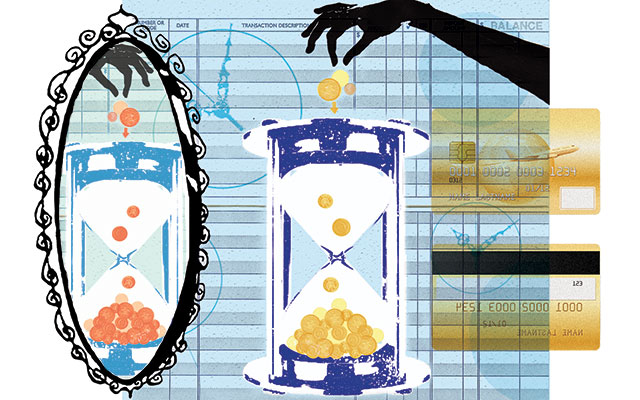For all the disastrous financial decisions I’ve made in my life — the decent jobs I’ve capriciously quit, the quixotic business ventures that flopped, the fruitless avoidance of taxes — I can’t claim I was led astray by anyone but myself. So, I don’t worry too much about falling prey to some villainous scam artist in my dotage. My Lovely Wife and I have learned some hard lessons over the years, the most important of which involves my heeding her advice.
Not every senior, however, is privy to sage financial wisdom. Some 5 million elderly Americans find themselves hoodwinked by friends, relatives, and perfect strangers every year, to the tune of $36.5 billion, according to the National Council on Aging. And a recent study suggests that those who struggle to maintain social connections are especially vulnerable.
A research team from the University of Southern California’s Keck School of Medicine recruited 26 older adults (average age of 65) and asked them about the status of their interpersonal relationships — the frequency of arguments, feelings of loneliness and rejection — every two weeks for six months. Those biweekly interviews also explored participants’ ability to make good financial decisions in the face of outside pressure. The results, published in the journal Aging and Mental Health, pointed to a link between social dysfunction and an increased vulnerability to phishing emails, bogus investment schemes, and other scams.
“When a person reported a spike in problems within their social circle or increased feelings of loneliness, we were much more likely to see a corresponding spike in their psychological vulnerability to financial exploitation,” explains study coauthor Aaron Lim, PhD.
It’s a pretty small sample, of course, and Lim admits more research is needed, but he urges family members to watch for signs that elderly relatives are struggling to maintain positive social connections and help them avoid falling into a financial trap. Community organizations, too, can play a role here, he adds, by providing more opportunities for socializing among older adults.
Social-service agencies are pitching in as well, with the help of a training program developed by Mark Lachs, MD, and Jason Karlawish, MD. As Paula Span reports in the New York Times, the two geriatricians have been taking their Interview for Decisional Abilities (IDA) program to Adult Protective Services agencies around the country in recent months in an effort to help agency staff better handle reported abuses.
It’s a dicey dynamic. These state agencies are responsible for investigating neglect, abuse, and exploitation of the elderly, but investigators often struggle to determine whether a victim of alleged abuse is capable of making rational decisions. Span highlights an IDA role-playing exercise at a California agency in which an interviewer questions a fictional character, Ms. K, played by a social-services professional, about a series of suspicious financial transactions.
Withdrawals from her savings account had increased from $600 a month to $600 a week, and bank tellers had reported that the young man accompanying her seemed a bit intimidating and controlling. Meanwhile, Ms. K’s only credit card had expired.
When asked whether she was aware of scams that target the elderly, Ms. K said she’d heard about them on the news but denied that she’d been victimized. Her nephew lived with her and helped with chores around the house and drove her to doctor appointments. The weekly withdrawals, she explained, were used to buy groceries.
People have a right to make poor decisions, Lachs admits, but IDA is designed to determine whether the subject is making those choices with a clear understanding of the potential consequences. That requires answering three key questions about scams targeting the elderly, Karlawish notes: “Do you recognize that this happens? Do you think that this could be happening to you? Can you come up with a plan to address it, reasoning through and weighing the upsides and downsides?”
Ms. K seemed to understand the risks involved with her nephew, but for those who are unable to convincingly respond to those queries, the process may shift to a more thorough examination, including discussions with family members or appropriate social-service agencies. Some individuals may need to place their assets in a conservatorship and accept an assigned guardian.
Poor financial decision-making may be an early sign of diminished cognitive capacity, Daniel Marson, JD, PhD, a neuropsychologist at the University of Alabama at Birmingham, tells Span. “Financial capacity is probably the first higher-order functional ability affected by neurodegenerative disorders and by normal aging.”
I can’t really blame all my boneheaded financial decisions in the past on early-onset dementia or fractured social connections. They were typically triggered by an indiscriminate itch for change combined with an inflated sense of my own importance. That and an ample dose of youthful idiocy. These days, MLW and I spend a good deal of time discussing the pros and cons of any major financial decision before making a move. She does most of the talking; I do most of the listening.





This Post Has 0 Comments